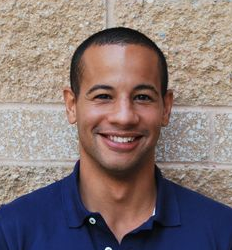Teacher to handicapped student: ‘My people fought so we wouldn’t have to serve white people like you’
June 25, 2015
 Victor Skinner
Victor Skinner
Victor is a communications specialist for EAG and joined in 2009. Previously, he was a newspaper journalist.
WAYNESVILLE, Ohio – Recent media reports are highlighting the
impact of misbehaving educators, revealing a system of tolerance and
secret deals that often allows perpetrators to continue in the
profession far longer than they should.
The Cincinnati Enquirer
submitted a public information request to 48 Ohio school districts in
Hamilton, Butler, Clermont and Warren counties for employee misconduct
reports, and the response is eye-opening.
Twenty-eight of the districts reported zero reports teacher misconduct, while six districts reported multiple problems.
“Three reports showed teachers convicted of sexual relationships with
students, four had teachers allegedly involved in physical altercations
with students, and four listed academic fraud, where teachers allegedly
falsified test results or gave students answers ahead of time,” the
news site reports.
“Statewide, the Ohio Department of Education resolved 676
investigations in 2014; 449, or 66 percent, resulted in some form of
discipline, ranging from a letter of admonishment to license
revocation.”
Those cases involved educators like Wayne Local Schools intervention
specialist Pamela Bullock, who was investigated and later resigned after
four teaching assistants wrote a letter last spring detailing her
mistreatment of special education students.
Bullock allegedly threw a marker at one student, removed the safety
wheels from the wheelchair of another, and was known for belittling
students with racial references.
The same day Bullock allegedly threw a marker at a student’s head and
“a racial comment was directed toward the same student,” the assistants
wrote in their letter, according to the Enquirer.
“After applying a bandage to the student’s leg, (Bullock) said,
‘Anything else, your highness? … My people fought for years, so we
wouldn’t have to serve white people like you.’”
And then there’s the repeat offenders, who slip through the cracks in
the system, aided and abetted by school administrators and union
representatives who negotiate secret deals that exchange a letter of
resignation from a misbehaving teacher for a letter of recommendation
for employment elsewhere.
The Enquirer reports:
In central Ohio, Columbus City
Schools fired Jeffrey Poulton after he engaged in a romantic
relationship with a teacher during school hours, according to state
records. Poulton then got a job with North Fork Local Schools in
southeast Ohio, but he was let go after one month.
From there, he went to Tennessee,
where he resigned after he was suspended for alleged inappropriate
communication with a student.
The kicker: North Fork Principal Mark
Bowman gave Poulton a glowing recommendation for the Tennessee job. He
rated Poulton “above average” in every category, saying he would rehire
Poulton and that he was “great to be around — a plus in any system.”
Ohio officials took Poulton’s license
March 10, citing the Columbus incident and an allegation that Poulton
had a romantic relationship with a student back in 2009 — before the
Columbus firing, before North Fork, and before Tennessee.
“Passing the trash,” or “the dance of the lemons,” as it’s known in
the education world, is central to a landmark teacher tenure case in
California – Vergara v. California.
Reuters
reports the state’s attorney general and Gov. Jerry Brown are appealing
a ruling last year that struck down tenure laws that protect
misbehaving teachers.
U.S. Education Secretary Arne Duncan hailed the ruling as a “mandate”
to fix the broken system, while California’s teachers unions continue
to argue there’s no evidence California’s teacher tenure system harms
students.
But attorneys for the nine students who sued California over the
tenure laws submitted evidence showing only two out of 275,000 teachers
in the state are dismissed each year for poor performance.
“You don’t need a lot of adjectives and adverbs to be able to figure
out that’s a broken system,” Marcellus McRae, attorney for the students,
told reporters in a conference call, according to Reuters.
Instead of firing teachers that need to be fired – a very difficult,
time consuming and expensive endeavor under California’s current tenure
system – school officials more often simply shuffle bad teachers from
one district to another in the “dance of the lemons.”
“And the schools most often on the receiving end of these ‘lemon’
transfers are schools serving predominantly poor and minority students,”
McRae argues.
In the original
Vergara v. California ruling by Los Angeles
Superior Court Judge Rolf Treu, the judge found that California employs
between 2,750 and 8,250 grossly ineffective teachers, meaning that
California’s tenure system unfairly protects between 2,748 and 8,248 bad
teachers – after deducting the two bad apples dismissed annually in The
Golden State.
 “Pena
“Pena
